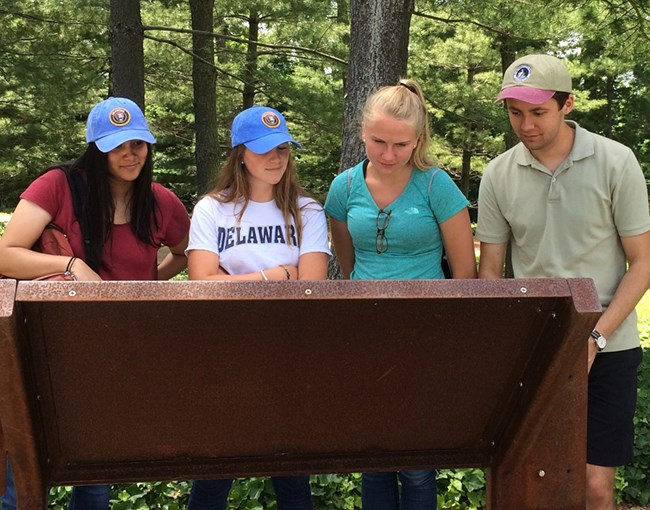
NPS
Overview
The Urban Ecology Research Learning Alliance (UERLA) is a Research Learning Center that serves 16 parks in National Capital Region.
We translate complex research results into readily understandable information, providing research, education, and technical assistance for parks. UERLA also provides science communication outreach to park managers and external audiences through websites, workshops, and publications. UERLA maintains research and education partnerships with universities, not-for-profit, education, and other federal agencies. The education activities of UERLA include providing training opportunities for NPS staff and partners, participating in science education programs, and building external partnerships that support science education in parks.
Contact
Contact Research Coordinator Diane Pavek for additional information.
If you need assistance from Resource Stewardship and Science (RESS), you may submit a Solution for Technical Assistance Requests (STAR) request online (NPS Only).
Projects
- Spotlight on National Park Resources -This biennial meeting highlights research projects on cultural and natural resources in National Capital Region parks. Presentations and posters focus on understanding park cultural and natural resources and how research results inform resource management decisions. We encourage projects showcasing collaborations, interdisciplinary studies, and Chesapeake Bay Watershed landscape connections. This meeting is hosted by the Cultural Resources Advisory Team (CAT), the Natural Resources Advisory Team (NAT), and the Urban Ecology Research Learning Alliance. (biennial)
Links
Last updated: February 17, 2026
